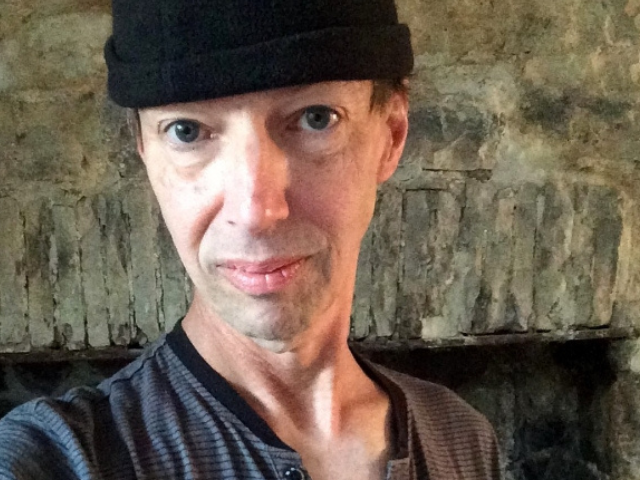
Overcoming cancer twice: experiences of taking part in a research study
3 July
Taking part in research is crucial for advancing medical knowledge and improving patient care. Every year, countless individuals join health and social care studies through Be Part of Research, a service connecting people to research opportunities. A former lecturer turned furniture maker shared his story of taking part in research after his cancer unexpectedly came back.
Philip Cumpstone,59, from Ystradgynlais, participated in the PEARL study. which investigated whether the use of PET-CT scans improves targeted radiotherapy planning to potentially reduce side effects for mouth and oropharyngeal cancer patients.
Why take part in the study?
Despite overcoming lymphoma in 2011, a recurrence occurred in 2022 in his lymph node. When Philip was being treated for the second time, he was keen to take up the opportunity and take part in the PEARL study.
"Having faced diagnosis and recovery in 2011, it prepared me for this time. I can navigate the journey more confidently now, drawing from my past experience and understanding the process better."
His decision to participate in the study was also fuelled by an interest in data management within the NHS and a desire to help expand medical knowledge.
From having the PET scan to find out exactly where the cancer was so they can precisely target the tumour to his first radiotherapy appointment, Philip described the experience as very pleasant.
“The research team has not only shown professionalism but also a human side, making the entire experience enjoyable and reassuring.
"They’re delighted to go into detail and explain everything.”
His experience was very positive thanks to being taken care of with open communication, precise treatments and a sense of being valued throughout the process.
“I've felt respected and almost like a family member at every stage."
During his treatment, Philip kept making furniture:
“The kind of furniture that I make is often referred to as ‘primitive’ or ‘Welsh stick furniture'. It's made mainly from hedgerow foraging and from fallen or coppiced native hardwoods.”
Green woodworking was a great focus for Philip. For him this was time to practice what is called ‘mindfulness’ which gave him an opportunity to meaningfully contemplate and reflect on the self-management of his cancer treatment.
“I kept a diary and a sketchbook during the treatment periods to record design ideas and keep those observations flowing. The creativity never stops!”
Where would we be without research?
Philip encourages others to consider taking part in research. To Philip, participation in research provides valuable insights into both individual treatments and broader medical understanding of the disease.
"I believe when patients and doctors work together, it not only helps people get better but also gathers valuable data for making future treatments and research better.”
Discover a range of opportunities to take part in or help with health and social care research in your area by visiting the Be Part of Research website.